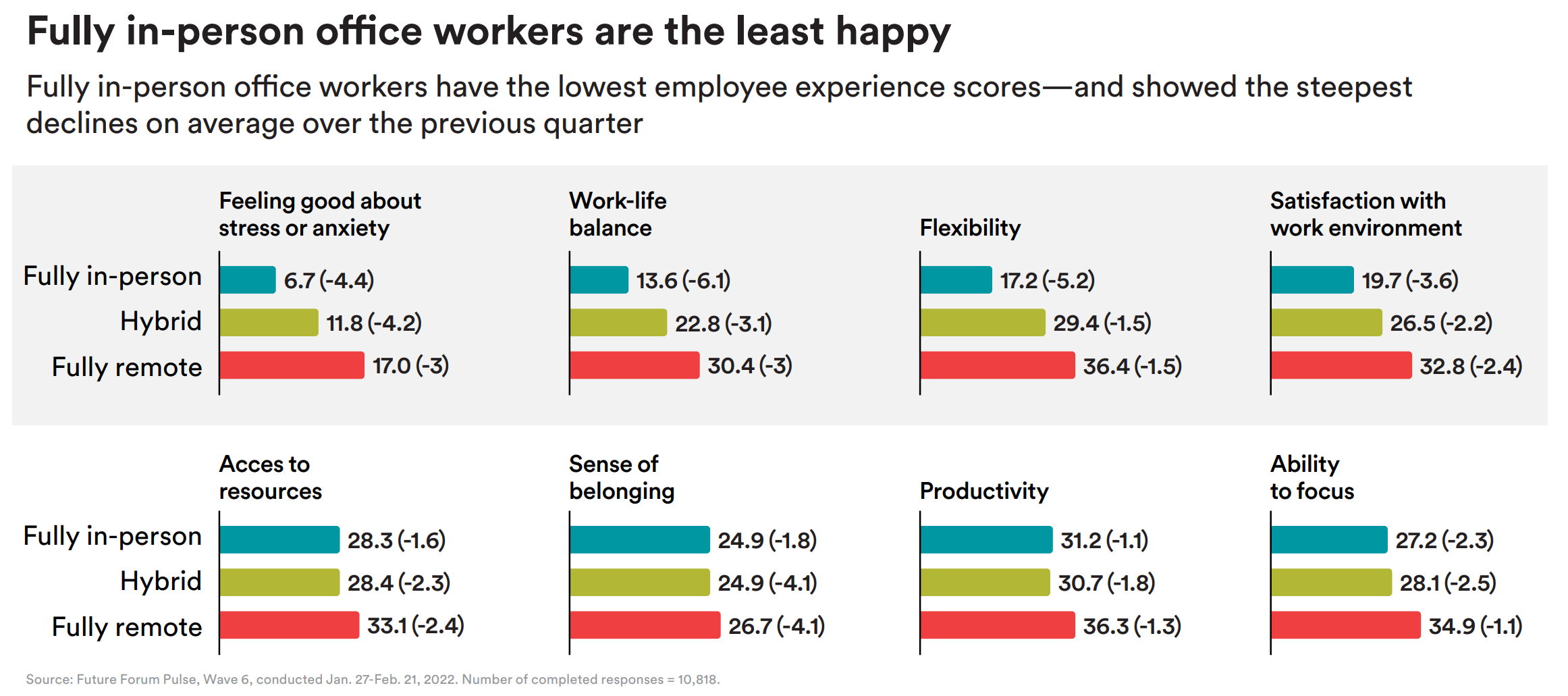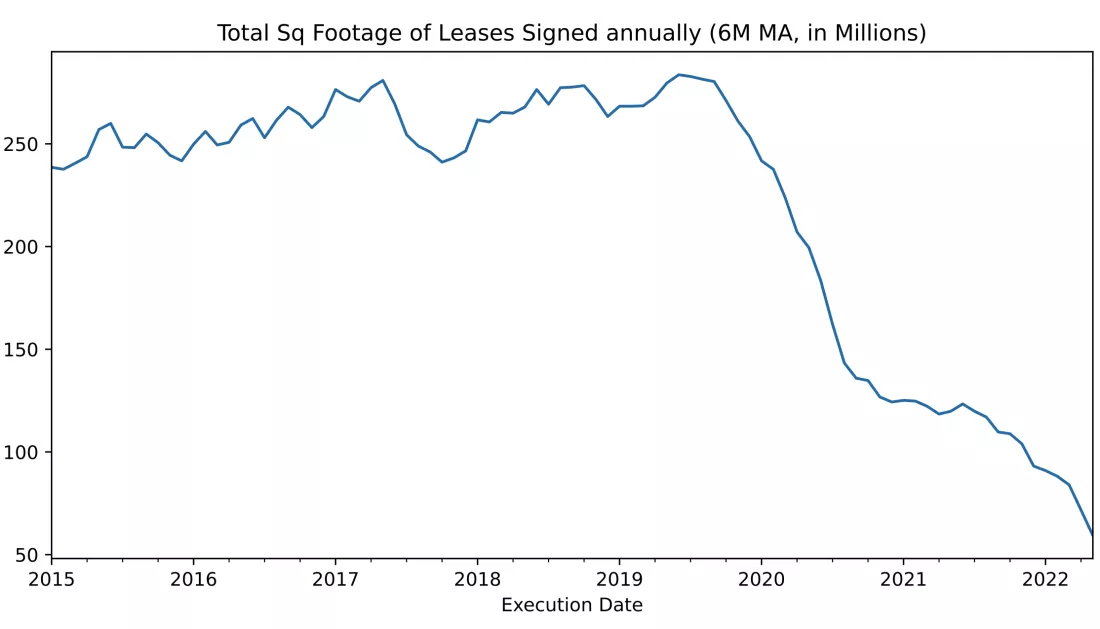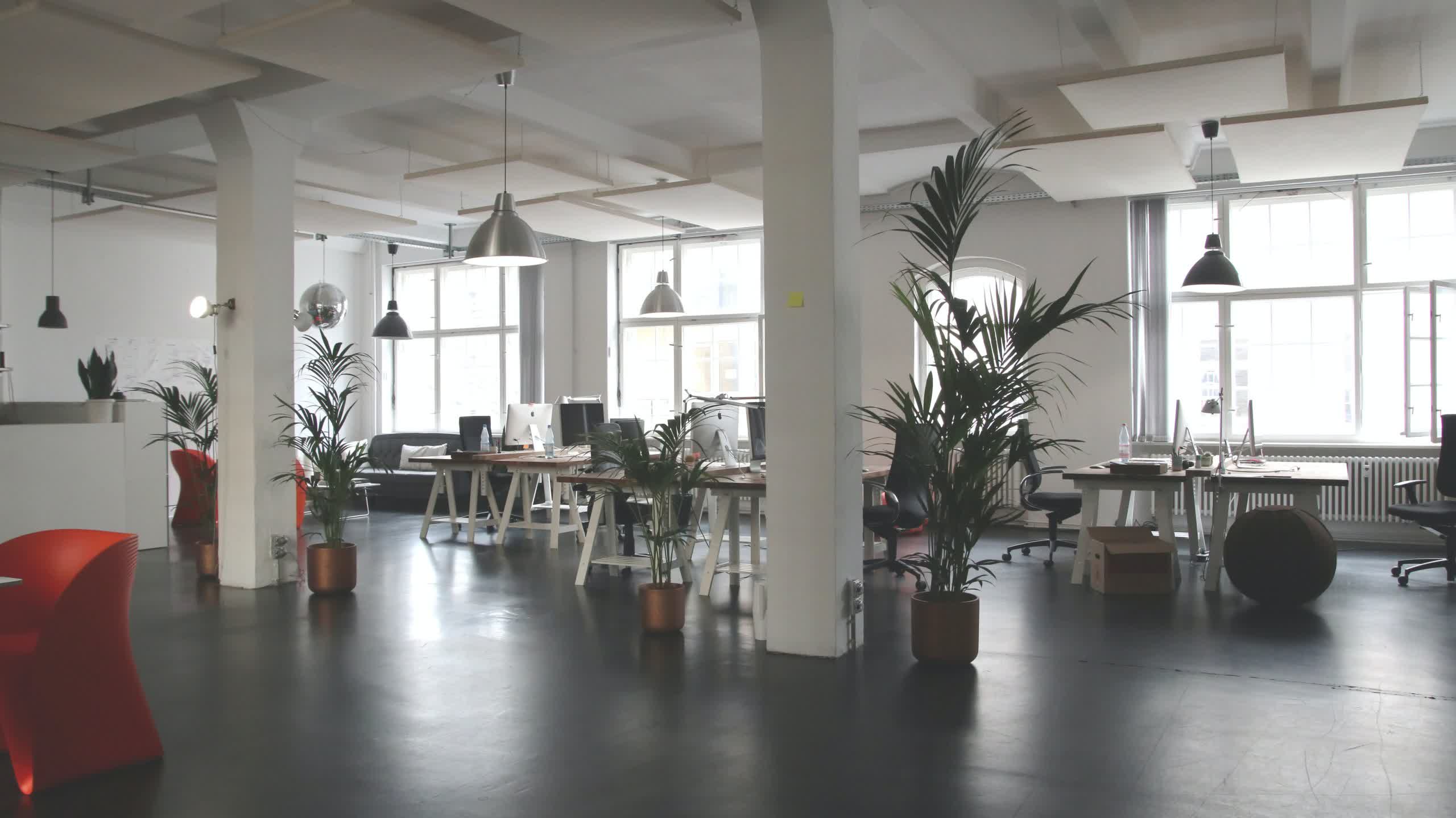In a nutshell: For many companies, 2023 was supposed to be when employees got back into the office, and working life returned to the pre-pandemic status quo. But despite offices in cities reaching 50% residency rates at the start of the year, that figure has barely increased as most firms opt for a hybrid work strategy.
While plenty of companies are telling their employees to get back into the office following the enforced work-from-home mandates that arrived in 2020, most aren't asking them to return full-time. According to Scoop Technologies (via The Wall Street Journal), a software firm that monitors almost 4,500 workplace strategies, about 58% of companies allow employees to work some of the week from home. Interestingly, the number of companies that require full-time work from employees has shrunk from 49% to 42% in three months.
Scoop added that employees at companies with hybrid strategies work an average of 2.5 days per week in the office.
There has been plenty of pushback against employers calling their workers back. Apple staff were so against Cupertino's return-to-work mandate that they launched a petition. Amazon employees, meanwhile, raged so hard that one of its executives had to plead for calm.

The most recent example of this outcry was at Dell, which is demanding people come into the office three days per week, though some say this is just a soft layoff as many would rather quit than return.
Scoop says that as long as unemployment remains low, workers have the leverage to push hard against being asked back into the office full-time (or even part-time) without fear of being fired.
While working from home might be a dream come true for many people, it's causing plenty of problems in US cities due to lost taxes. In New York, property taxes account for one-third of the city's revenue, and office buildings make up a fifth of that source. Manhattan is an area being hit particularly hard, having seen a $5.24 billion decline in tax revenue since 2019.

There's also the impact that fewer commuters have on local businesses. It's estimated that each employee working from home rather than in the office costs New York City businesses about $4,600 in sales annually, according to WFH Research.
The amount of money it's costing the city has seen New York launch initiatives to try to get workers back into the office, including tax incentives for building owners to upgrade properties constructed before 2000. "Every office sitting empty means less funding for everything from schools to affordable housing," said New York Mayor Eric Adams.
While some cities, especially those in Texas, are seeing higher than average rates of workers returning full-time, most companies are sticking with a hybrid plan. It might not be full-time remote work, but firms see it as a comprise that offers the benefits of in-person work and the satisfaction that comes from being at home.
Masthead: Marc Mueller
https://www.techspot.com/news/98704-offices-half-empty-companies-opt-hybrid-schemes-over.html
